Don't Litter! Spay or Neuter Your Dog
You may think your pet is too young for surgery, or you might think you will someday breed your precious fur-child, but get the facts and take proper precautions before you leave your pet unaltered for very long.
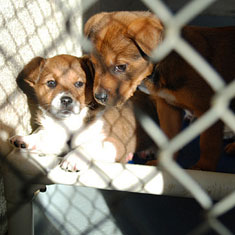
Why is it important to spay/neuter dogs?
The top reason people give when asked why they have not spayed or neutered their dog is "my pet is too young." Although your female dog probably won't be able to become pregnant before the age of six to eight months, the American Veterinary Medical Association supports getting her spayed before the age of ten weeks. Male dogs can also be neutered at this young age, which is just as important as spaying your female dogs.
Some vets will not sterilize animals this young, preferring to wait until the dog is at least six months of age and can better handle anesthesia risks. As long as your dog is spayed before she enters her first heat cycle, you will not be at risk of an unplanned pregnancy. Just don't let yourself forget!
People Saving Pets, one of the PetSmart Charities, estimates that 35% of all cats and dogs in the United States are unaltered, meaning that as many as 60 million remain able to breed. Every year, an adult female dog can produce two litters, each with an average of four puppies.
Do the math: one adult female can produce 8 puppies a year. Assuming half are female, the next generation will produce at least 32 puppies (4 x 8), and the original dog can produce another 8 if her family hasn't figured out where all the puppies are coming from yet. In just two years, this is at least 48 puppies from the one single dog that remained unspayed.
No wonder our shelters and rescues are filled to overflowing! And when they run out of space, we all know what happens. More than 4 million animals are euthanized in the United States each year simply because there is nowhere to put them.
How much does it cost to spay or neuter a dog?
Prices for spaying and neutering vary from area to area, as well as between veterinary practices in the same area. In general, small dogs cost less than large dogs and neutering is less expensive than spaying. A good average in the Midwest would be about $75 - $125 for neutering and $100 - $150 for spaying. On the coasts, expect to pay more.
The good news is that because spaying and neutering is so incredibly important, there are free or low-cost clinics in most areas so there is no financial reason not to have your pet sterilized. The ASPCA maintains a database of low-cost spay/neuter clinics searchable by zip code.
Are there other reasons to have my dog spayed or neutered?
Aside from the problem of overpopulation, spaying and neutering makes sense for a number of reasons.
Males who are neutered are often less aggressive and less likely to run away from home. They are also less worried about territory and therefore less likely to mark their territory (which may include your irreplaceable Persian rugs). Finally, a dog who is neutered cannot possibly get testicular cancer, as his testicles no longer exist.
Females who are spayed prior to their first heat cycle are about seven times less likely to develop mammary cancer as their intact counterparts.
Although spaying and neutering will not change your dog's overall personality, the surgery will make your pet less focused on "getting some" and more focused on interacting with your family. After a short recovery period, you may find your dog is more playful and happy.
Won't my male dog look funny after being neutered?
It's true, your dog's scrotal sacs will shrink after the testicles have been removed, and there will be small "flaps" of skin after the healing process is complete. If this bothers you, there are prosthetic testicles sold under the brand-name of Neuticles that can be implanted during the sterilization surgery.
Will a dog gain weight after sterilization?
Weight gain following sterilization surgery is an old wives' tale. The two things that make dogs fat are the same two things that make people fat: overeating and lack of exercise. As long as you feed your dog a reasonable diet and provide adequate exercise opportunities, your dog will not gain weight with or without his reproductive plumbing.
What if I want my child to witness the miracle of birth?
In this digital age, there are tons of online, video, and book resources to allow your children to experience as much of the miracle of birth as you want them to. Your kids will likely think the actual process is pretty gross, and chances are, your dog will go into labor while they are in school or asleep anyway.
What if want to breed my dog?
If you are not a professional breeder, you might want to think very carefully about whether or not you are really going to commit to breeding your dog. Very few people make any money breeding, and you must be willing to commit to finding homes for all of the puppies your dog might produce in even a single litter.
Some of the questions you might want to ask yourself if you are considering breeding:
- Do I have the time, money, and expertise to care for a pregnant dog and puppies who may have health problems?
- Am I willing to bottle-feed any rejected puppies every two-to-three hours (even overnight) for the first several weeks after birth?
- Do I have people lined up to take the puppies, even though I have no previous track record for producing champion dogs?
- Does my dog have the proper paperwork to document his pedigree?
- Is my dog a near-perfect example of the breed standard? (If not, the chances that your dog will produce champions are slim to none.)
- If you're not breeding for conformation, does your dog have especially good scores at field trials, lure coursing, earth dog trials, or other sports? (If not, your dog may not be capable of producing offspring who are competitive.)
If you're not sure about your commitment, do yourself a favor and spay or neuter your dog before there is even the first opportunity for an unplanned litter. Don't risk adding to the problem of pet overpopulation.
If you decide you have the required commitment and resources to breed your dog, make sure you take proper precautions to allow only planned pregnancies. Keep your dog inside a fenced yard, and do not allow unaltered dogs to visit. If your female is in heat, she belongs at home, not at sporting events or shows. Keep your male dog on a leash and under your control at all times.
How much do you know about the pet overpopulation problem? Take this online quiz to test your knowledge.
Doggies Den: Latest Articles
 Homemade Thanksgiving Treats for Your Dog
Homemade Thanksgiving Treats for Your Dog
NUTRITION We all want to include our dogs in our holiday celebrations, but hopefully, you're aware that sharing table scraps with your dog isn't always the best idea.
 Keeping Your Dog Safe during the Summer Months
Keeping Your Dog Safe during the Summer Months
HEALTH Summer is coming on fast, so it’s time to plan how you will keep your dog safe and healthy through the lazy, carefree, warm days.
 Vaccination Time Again-Keeping Your Puppy Healthy
Vaccination Time Again-Keeping Your Puppy Healthy
DOG HEALTH So you have your new puppy picked out. There are quite a few shots, treatments and examinations that will keep the newest member of your family healthy.
 Canine Thanksgiving Feast
Canine Thanksgiving Feast
NUTRITION With the wide variety of food at Thanksgiving dinner, chances are you'll want to give your dog something special, too. If you're contemplating what to feed your dog for the holiday, here is a guide to a great Canine Thanksgiving Feast.
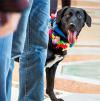 Dog Walking Tips Every Owner Should Know
Dog Walking Tips Every Owner Should Know
DOG FUN Walking your dog is not only crucial to keeping him healthy and happy, it strengthens the bond between your canine friend and his caregiver. There are a lot of obstacles out there. Don’t forget these simple tips to keep your walk fun and safe in the outside world.
 The Benefits of Physiotherapy for your Dog
The Benefits of Physiotherapy for your Dog
HEALTH The same techniques that physiotherapists use to treat a variety of injuries and conditions in humans have been adapted to suit animals with great success. Family pets, show dogs, and working dogs can all benefit greatly from physiotherapy. Dogs whose activities involve a lot of agility are especially susceptible to the types of problems that physiotherapy can address.
 The Decision- Adding a Dog to Your Family
The Decision- Adding a Dog to Your Family
FIRST TIME OWNERSBringing a dog into your family is a decision where many people don’t realize it’s magnitude until after they have the dog. There are a number of things that you need to research before you decide to purchase a dog, and it starts right in your own home.
 Bringing Your Dog Into Your New Baby's Life
Bringing Your Dog Into Your New Baby's Life
HEALTH Many believe that a dog and a new baby cannot happily coexist, so therefore the dog has to go. This is not necessarily the case.  A new baby does not mean you have to abandon your dog.

Doggies Den:
Most Popular Articles

Dog Pregnancy Symptoms
HEALTHIf you suspect your dog might be pregnant, check out part one in this series on pregnant dogs, where we cover pregnant dog symptoms.

Dog Birth
HEALTHIn the third article of our dog pregnancy series, we look at the wonderful, but messy, process of bringing newborn puppies into the world.

Indoor Dog Potties
DOG PRODUCTSIt's been a long day at work. You were so busy, you didn't even take time to eat a sandwich, let alone run home to let your dog out. You're on your way home, knowing the poor dog is crossing his or her legs by now, when your car breaks down, delaying you even further. Can't somebody make this easier?

Your Dog’s Digestive System
PHYSIOLOGYEver wonder why your dog eats so fast? Or why he eats gross things? Or why he gets sick to his stomach? Or why his waste stinks so bad? Some of these things are normal, some are not.

Canine Respiratory System
BREATHINGThe basic function of your dog's respiratory system is to bring oxygen in to and remove carbon dioxide from the body. Knowing the symptoms of respiratory diseases can help you help your stay healthy.
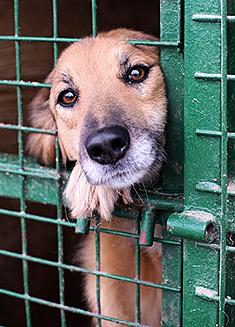
Shelter Dog Adoption Tips for Success
ADOPTION Are you intimidated by the prospect of "rescuing" a dog from a shelter? One reason that you may be wary of adopting a dog from a shelter is not knowing how to choose. Adopting a dog from a shelter can be a rewarding process, if you're prepared to do a reasonable amount of research.
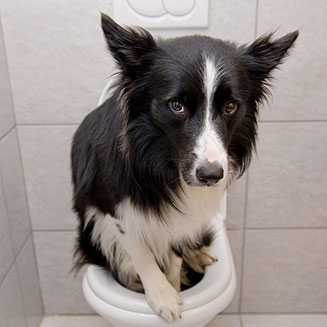
Canine Urinary Tract Infections
SYMPTOMS AND TREATMENTDoes your dog seem to be having trouble relieving his or her bladder? Learn how to recognize the signs of urinary tract infections and how to treat them before they spread.
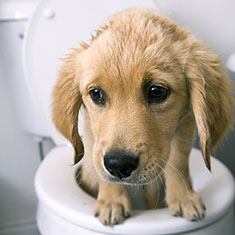
What to do for Dog Diarrhea
SYMPTOMS AND REMEDIESIf you have dogs in your house for any length of time, you have likely experienced at least one bout of dog diarrhea. Beyond the pain in the tuckus involved in cleaning up the mess, you should know what causes diarrhea, and when it's important to see the vet.

What to do for a Dog Bite
DOG BEHAVIOR Getting bitten by a dog can be scary, and you may be tempted to run around in circles for a while, trying to figure out what to do. Here's our guide to help you manage the situation.
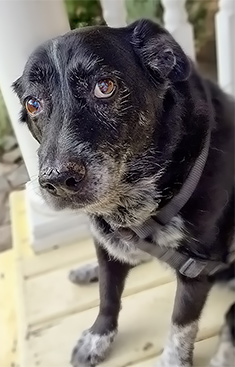
Top Ten Tips for Living with a Senior Dog
DOG HEALTH Bringing home a new puppy is so exciting, but it doesn’t take all that long for your exuberant puppy to grow into a senior dog who may have special needs. Here are the doggies.com top ten tips for taking care of your companion who has been with you through so much.
